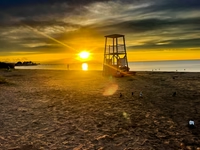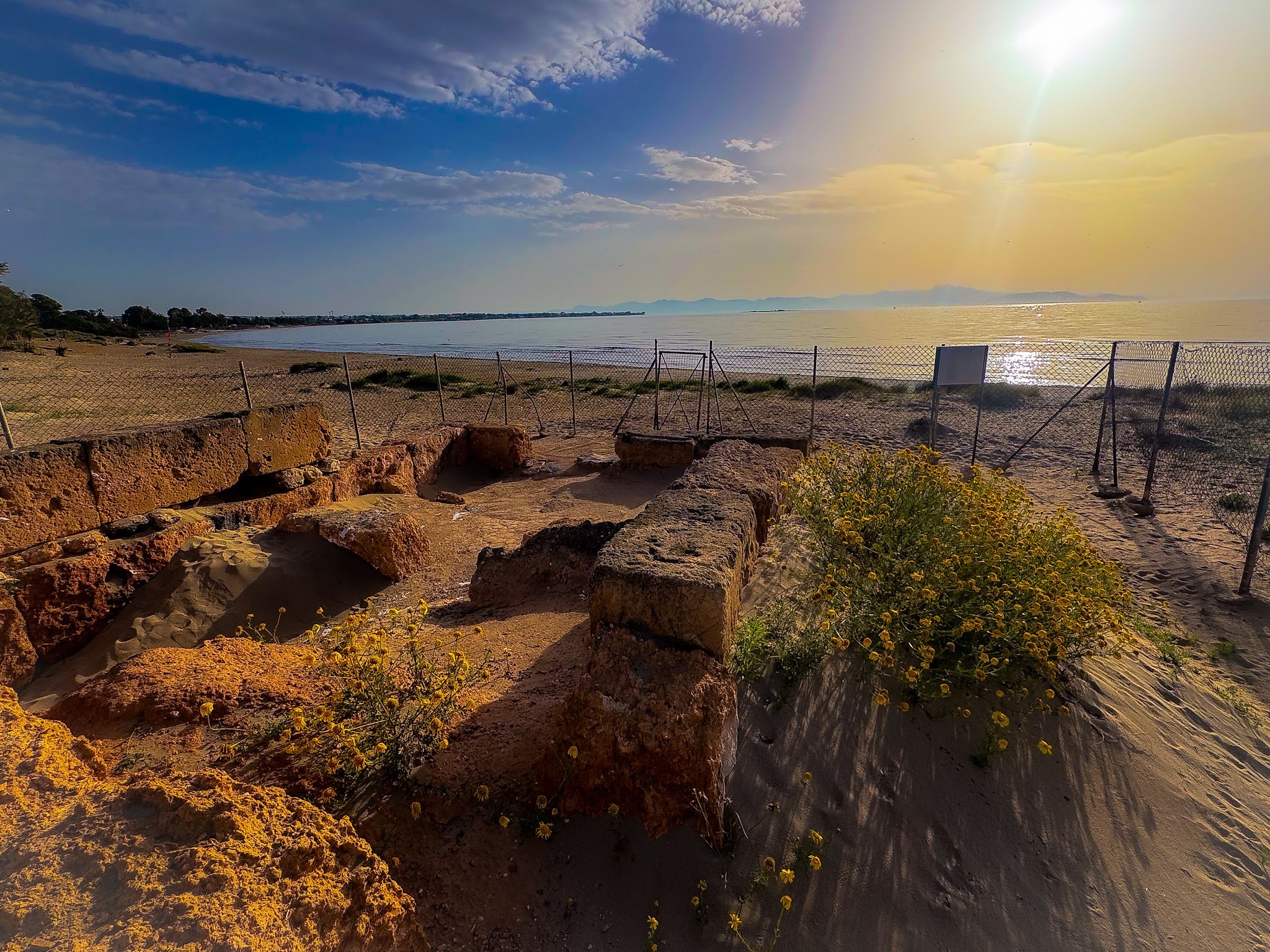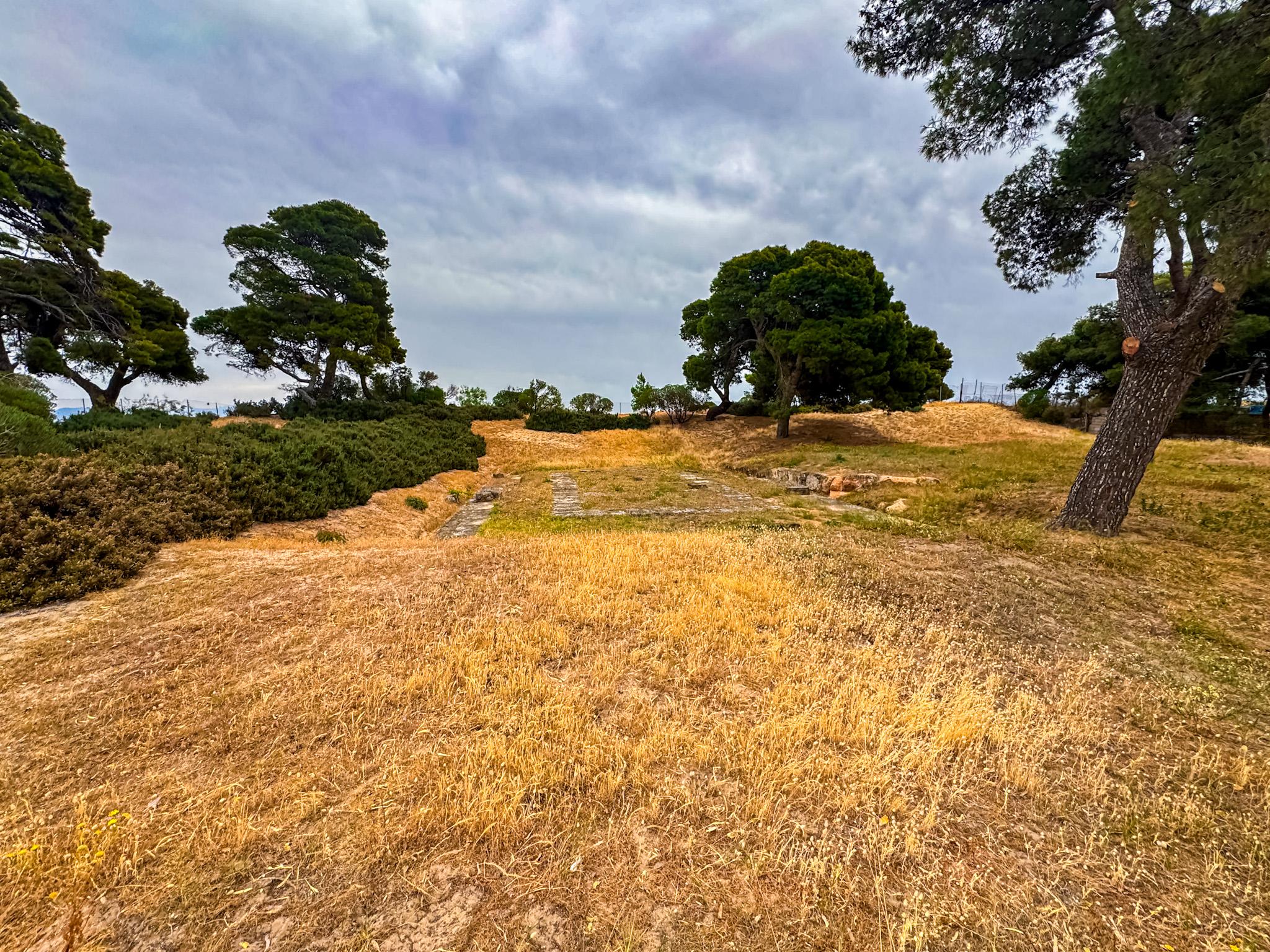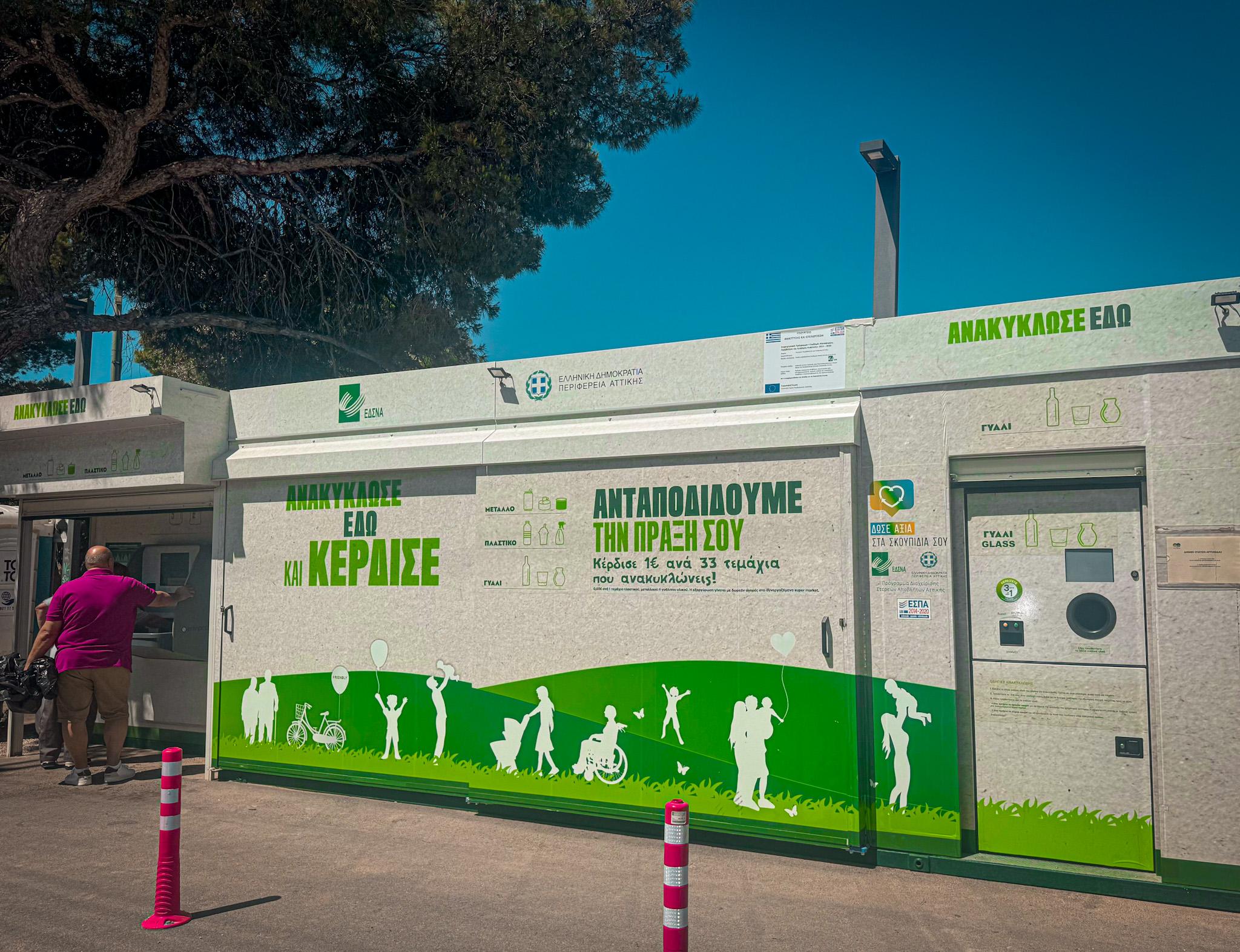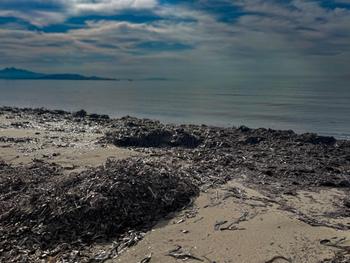
The Beach in Artemida Near Athens - What to Know Before You Go
What you’re actually seeing are the fallen leaves of Posidonia oceanica, a protected species of seagrass found only in the Mediterranean Sea. These aren’t seaweed or algae-they’re flowering marine plants that grow in underwater meadows, playing a crucial role in the marine ecosystem. Posidonia meadows produce oxygen, capture carbon dioxide, help stabilize the seabed, and provide shelter for hundreds of marine species.
When the leaves naturally die off, they’re carried by the waves to shore, especially in areas near wetlands or river mouths, like here in Artemida.
So, why aren’t they being cleaned up?
First, Posidonia is a protected species throughout the European Union. Removing large amounts of it from the beach - especially with machines - can harm the environment and violate conservation laws.
Second, those dried leaves actually serve an important purpose on land too. They act as a natural barrier that protects the beach from erosion, helps retain moisture in the sand, and signals a healthy coastal ecosystem.
And third - this area is part of the Natura 2000 Network, a system of protected natural sites across Europe. That means even basic actions, like “cleaning the beach,” have to follow strict environmental guidelines. Local municipalities can tidy up beaches, but in sensitive areas like this, they must do so carefully and with approval from environmental authorities.
So what can you do? Honestly- just get used to it, or walk around it. It’s a small trade-off for helping keep this place beautiful and ecologically alive.

